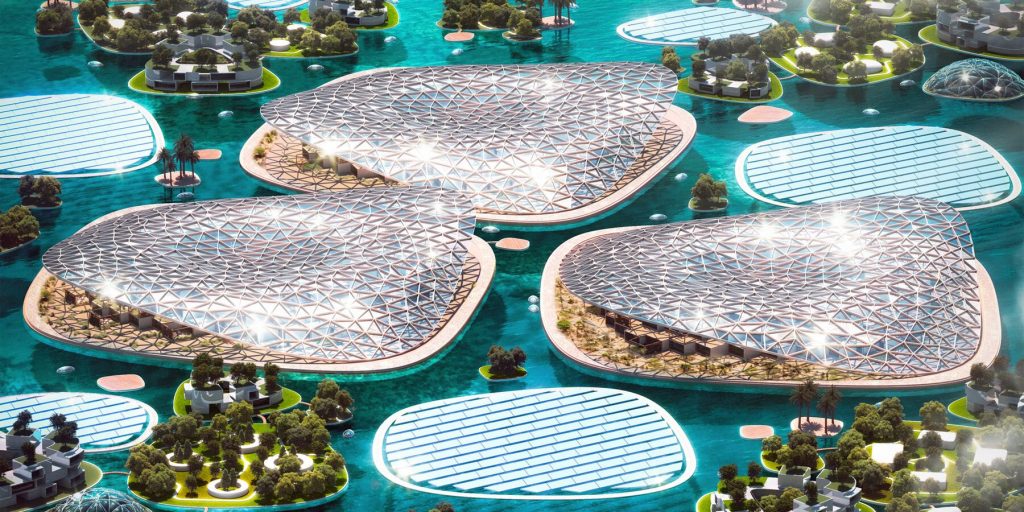URB, a renowned developer of sustainable cities, has recently revealed its ambitious plans for what is being hailed as the world’s largest ocean restoration project – Dubai Reefs. With a remarkable track record in designing smart, net-zero cities to address challenges posed by population growth, urbanization, and climate change, URB’s previous successes include sustainable city projects in Yiti, Oman, and Abu Dhabi’s Yas Island.

Dubai Reefs aims to establish a sustainable floating community that will encompass a diverse range of residential, hospitality, retail, educational, and research facilities. URB envisions Dubai Reefs as a global epicenter for marine research, eco-regeneration, and eco-tourism, positioning Dubai as a leader in these crucial fields. The driving force behind this transformative project is URB’s CEO, Baharash Bagherian, who emphasizes the intrinsic connection between the health of cities and oceans.
Bagherian states, “The ocean is the source of life, governing everything. Our planet’s interconnectedness means that a healthy ocean is synonymous with a healthy city. If we fail to take action today, our ocean will be unrecognizable by the end of the century.”
Staying true to Bagherian’s green vision, Dubai Reefs will operate on renewable energy generated from solar, hydropower, and wave farms. Visitors to the Reefs will have the opportunity to partake in unparalleled marine-based eco-tourism experiences, hosted in futuristic floating eco-lodges.
At the core of the project lies a marine institute dedicated to safeguarding Dubai’s marine and coastal environment. A massive 77-square-mile (199-sq-km) artificial reef will serve as a natural habitat for over one billion corals and 100 million mangrove trees. These coastal ecosystems will play a vital role in carbon sequestration and storage, offsetting the impact of past oil drilling and dredging along Dubai’s coast.
The institute will prioritize education and conservation, taking the lead in a global ocean clean-up initiative aimed at removing plastic debris and ensuring Dubai’s coastal ecosystem serves as a long-term carbon sink. Regenerative ocean farming will provide both food security and contribute
to a greener economy. In addition to transforming Dubai into an enviable eco-destination, Dubai Reefs is expected to generate over 30,000 jobs within a green economy framework.
Bagherian emphasizes the need for an entrepreneurial spirit when planning coastal cities and developing infrastructure connected to the ocean. With its innovative coastal city status, Dubai is perfectly positioned to lead such a transformation. Beyond establishing a resilient destination for ecotourism and marine research, Dubai Reefs aims to become a blueprint for ocean living while effectively mitigating the impacts oyef climate change.
Dubai Reefs represents URB’s visionary commitment to sustainable development, as the world watches in anticipation of this groundbreaking project that will set new standards for ocean conservation, marine research, and eco-friendly urban living.
Follow and Connect with us: Twitter, Facebook, Linkedin, Instagram







